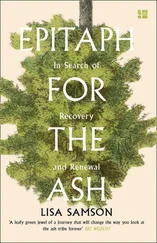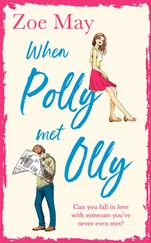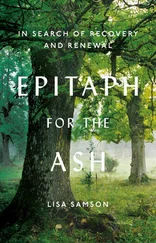Mum’s death had been as ordered as her life. She left no loose ends for us to tie. At home we were suffering strange and constant tensions, a sort of thrumming at barely audible frequencies, just beneath those of grief. It was as well that Bobby had moved out.
Mum’s was a life scented by the fresh, good smells of hot ironing and baking cakes, a dab of Ma Griffe when Father got home, though sometimes there was also a breath of sherry and tears. Generally, the shedding of tears was forbidden by our father. When she lay dying, Bobby only cried in the chair beside her bed when he wasn’t home.
In the final stages of her illness, I stayed by her side. A teacher came down on the train from Ascot to talk to me but left without my promise to return. Mum’s nurses counselled me too, said I’d get stuck if I didn’t go back to school and sit my O levels. Everyone assumed that I was scared she’d die if I left the room but I was more terrified of leaving her weakened and alone at the mercy of my father than of her dying.
Bed linen, nighties, clean, freshly ironed. Reading and snoozing and later doing all the community nurse’s jobs too. Mum slept more and more as the months drifted by, smiled to find me when she woke. I sat writing stories in her threepenny jotters, savage tales of girls and wolves and houses with hidden rooms. When she was bright we made lists in the jotters and she instructed me in keeping the home the way Father liked it. Home was two floors of Palace Court, eight tall rooms to keep army-shape and spotlessly clean. His castle, her prison. It was unbearable really, what she put into a life that wouldn’t contain her.
Soon no one seemed to care that I was no longer going to school, least of all me. My brother was at Hornsey Art School and worried about missing classes while gnawing at his fingers in the chair beside her bed.
‘I don’t mind if you draw me while I die,’ she told him when she was still strong enough to comfort us like babies while we bawled.
Her last day flickers behind my eyelids like something on cine. The tints are off, light flares, the frames jump and stall. She woke as Bobby came into the room. He hadn’t made it for ages and sailed in on a sea of excuses. I buttoned my lip, plumped and rearranged pillows, helped her to a more upright position, tidied what remained of her hair. Her voice was effortful because of the medication and her arm tremored as she pointed to her rolltop desk: ‘Today I need you two to help me straighten out my things.’
In a locked drawer were two small rectangular packages, addressed one to me and one to my brother.
‘They’re for later. Please don’t look now,’ she said. She pressed my package into my hands. ‘Have some adventures,’ she said. ‘Dare to dream.’
It happened that night. A sleeping angel, her hands crossed at her chest. Somehow an inquest was avoided though I’ll never not suspect that she and her good doctor hastened the end.
In Bobby’s package were the keys to a car, porcelain green, a convertible, parked in the square behind Palace Court. And here’s the thing: no one had known she owned a car until she died, though we knew she could drive because Father would occasionally allow her to take control of his Austin while he sat in the passenger seat not once allowing her to decide for herself when to change gear or indicate.
It was always better if Father wasn’t reminded of the car. Bobby was careful never to enter the flat jangling his keys or mentioning the price of petrol.
There was a biblical downpour the day that Charmian Clift’s book arrived – as I’ve said, it was always raining in the London I remember from that time. Bobby came in shaking water from his hair. He looked almost indecently healthy, more front of scrum than starving artist, his cheeks reddened from running through the rain and his hair a wet haystack. He started sorting through the post on the hall table, pocketing a letter that had come for him and leaving to one side a package addressed to Mum.
‘We should’ve sent out something to let people know…’ He tailed off with a heavy sigh. ‘Oh, well.’
Since my dad couldn’t cope with even the mention of her name, Mum’s post stayed in the hall until I took it away and wrote the sad tidings again and again.
‘You know he never deals with any of it,’ I said and Bobby shot me a look to be quiet because at that moment Father emerged from the bathroom, drying his hands and handing me the towel, as he might to a cloakroom attendant. ‘This hasn’t been changed in weeks,’ he said and shooed us. ‘What are you two up to loitering by the front door anyway?’
He made a grab for Bobby’s chin and forcibly turned his face to the light.
‘For pity’s sake, Robert. Did I not teach you to shave properly? What’s this with the bum-fluff? Are they supposed to be sideburns?’
‘Leave off,’ Bobby said, but Father only tightened his grip.
‘I hope young Robert is not thinking of becoming a Teddy boy next,’ he said while half-slapping, half-patting Bobby’s cheek.
Please, please, not a row. I put my hands to my ears. Father might make me stay home on a whim. Jimmy Jones, who I knew to be waiting back at Bobby’s digs, was very much on my mind. My new primrose-yellow jumper had a zip.
At last he let us be and it always felt like we were escaping even if it was only to go to the pub. Sprinting through the mizzle, we couldn’t help but hold hands, and whoop as we reached Mum’s little green car.
‘Has it been bad all week?’ Bobby asked as we settled into our seats and, not waiting for my answer, ‘We’ll get away soon, doll, I promise.’ The doggy smell of his wet reefer jacket filled the car. It no longer smelt of Mum’s perfume. Still, I liked that he called me ‘doll’.
I came tiptoeing back at dawn, sneaky as a cat. I was what my father, had he ever caught me, would’ve referred to as a ‘dirty stopout’, ‘a trollop’. Mum’s brown-paper parcel still waited in the hall. It was tied with tarry string and the stamps were beautiful: a large olive tree, an owl, a primitive saint. I wondered who was writing to her from Greece, and snuck to my room taking it with me. It was a risky routine, this five a.m. return, with a father like mine. My heart was pumping as I sponged myself down at the basin. Still damp, I sat at my dressing table and cut the string of the parcel that had been addressed in firmly inked capitals to Constance Hart, and not, as would have been correct in those patrician days, to Mrs Ronald Hart.
A book with a scene of white houses around a little harbour on the cover, Peel Me a Lotus its title and its author Charmian Clift. I looked at her picture and saw nothing of the chic upstairs neighbour I’d once known to be my mother’s friend. I summoned her up, this other Charmian Clift: elegant, tall in a tightly belted camel coat, crocodile handbag hanging from the crook of her arm, bright lipstick, an enormous smile. I’d encountered her only occasionally, and years ago, though I often thought about the first time we met, wondering what it was that had made her cry. She’d come across me outside in the entrance hall, where Mum had put me for safety while our father gave Bobby a hiding. I was cowering, tears and snot streaming, when I heard the rattle of the street door, felt a gust of air. I shrank into the shadows, ashamed at the sounds that were coming from inside our flat. Charmian led me upstairs by the hand, asking my name and what school I went to, what books I liked to read. We ended up sitting together on the top step. Her arms were around me, and though I was usually cautious of strangers, with Charmian it felt perfectly natural. She asked me my age: eight, I said and was surprised by her sudden silence and a tear that slid down her cheek. She got my name wrong after that, called me Jennifer, but I didn’t mind because I thought it prettier than my own.
Читать дальше

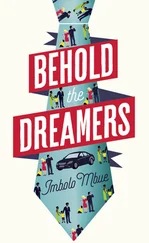

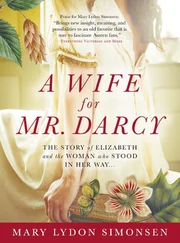

![Джон Макдональд - Wine of the Dreamers [= Planet of the Dreamers]](/books/430039/dzhon-makdonald-wine-of-the-dreamers-planet-of-thumb.webp)
